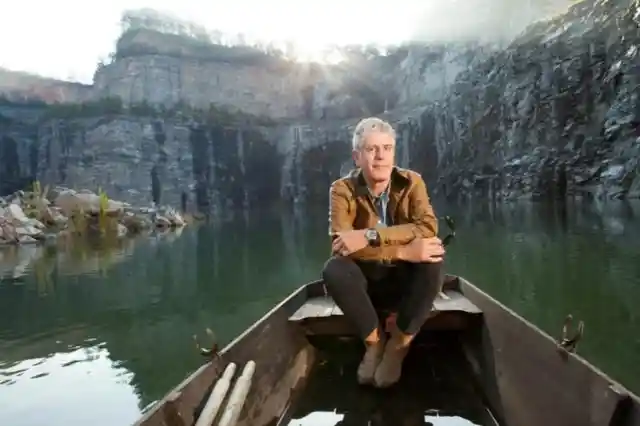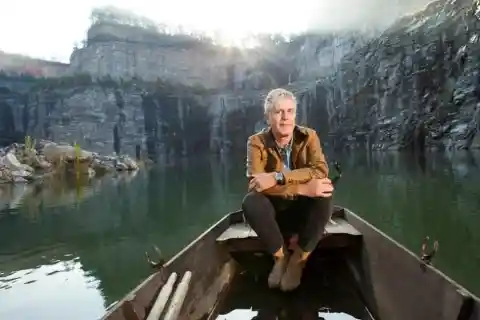He Taught Us That Travel Changes You
Chef, author, television host, and all around amazing human being died overnight at the age of 61. From the time he stepped onto the scene, he was a rare fixture in the culinary world, and he showed us the incredible kindness and culture that is available to us around the world. He didn't want to show us fine dining and trendy cuisine, he was instead devoted to bringing knowledge to the people at home. He's been hailed as making the biggest singular impact on food programming. He changed how Americans approached food forever, and made us realize that great food isn't found in an expensive restaurant, it's found in the homes of people around the world. He left us with countless lessons that one should always keep in mind, dedicated foodie or not.
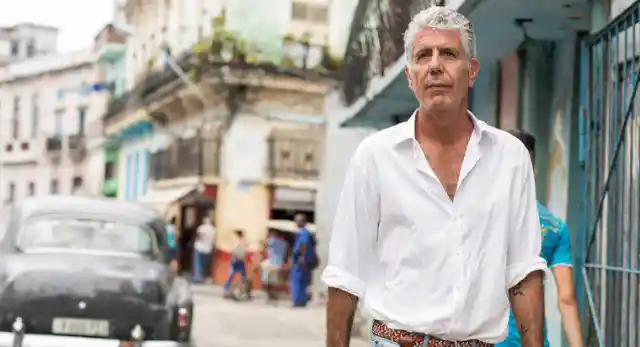
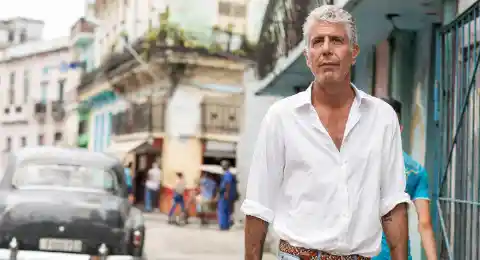
Chef, author, television host, and all around amazing human being died overnight at the age of 61. From the time he stepped onto the scene, he was a rare fixture in the culinary world, and he showed us the incredible kindness and culture that is available to us around the world. He didn't want to show us fine dining and trendy cuisine, he was instead devoted to bringing knowledge to the people at home. He's been hailed as making the biggest singular impact on food programming. He changed how Americans approached food forever, and made us realize that great food isn't found in an expensive restaurant, it's found in the homes of people around the world. He left us with countless lessons that one should always keep in mind, dedicated foodie or not.
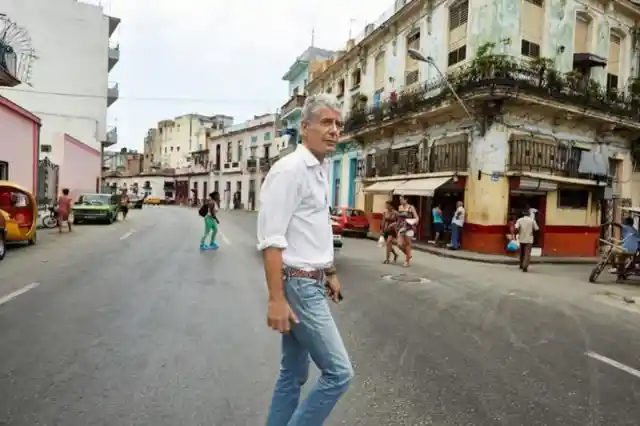
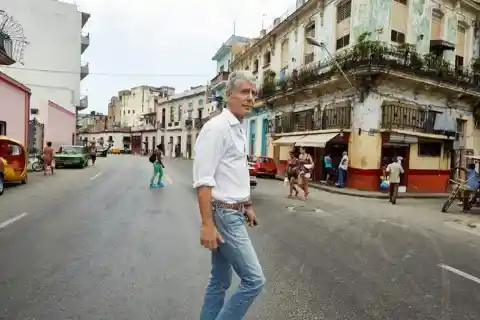
He Taught Us That Travel Changes You He Taught Us That Travel Changes You
Bourdain's eyes were opened during his time eating and living with Inuit in Canada's North. Much like how he had changed, he wanted his fans to travel and learn about themselves and the world through their love of food too. One of his most cited quotes it, "You learn a lot about someone when you share a meal together. Even if travelers aren't meeting new people around the dinner table, he says that you should always "trust the locals." This means, if they're lining up at one tiny food stall and completely ignoring the other, you should probably follow suit. He says to his audience, "I urge you to travel, as far and as widely as possible. Sleep on floors if you have to. Find out how other people live and eat and cook. Learn from them-wherever you go." Bourdain's eyes were opened during his time eating and living with Inuit in Canada's North.
He Showed Us That Although He Wasn't an Activist, He Was Incredibly Active


Much like how he had changed, he wanted his fans to travel and learn about themselves and the world through their love of food too. One of his most cited quotes it, "You learn a lot about someone when you share a meal together. Even if travelers aren't meeting new people around the dinner table, he says that you should always "trust the locals." This means, if they're lining up at one tiny food stall and completely ignoring the other, you should probably follow suit. He says to his audience, "I urge you to travel, as far and as widely as possible. Sleep on floors if you have to. Find out how other people live and eat and cook. Learn from them-wherever you go."
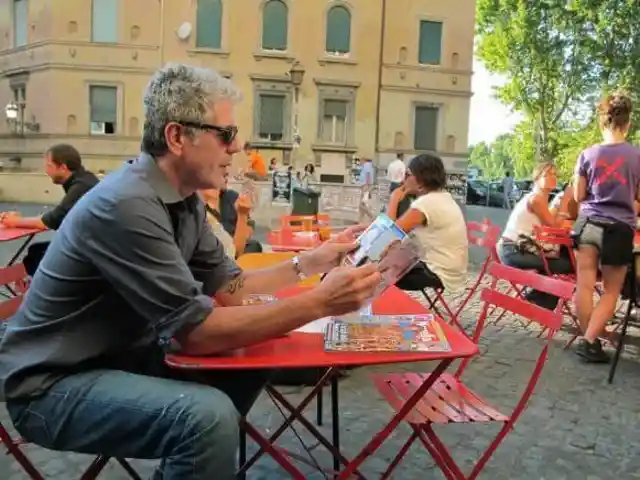
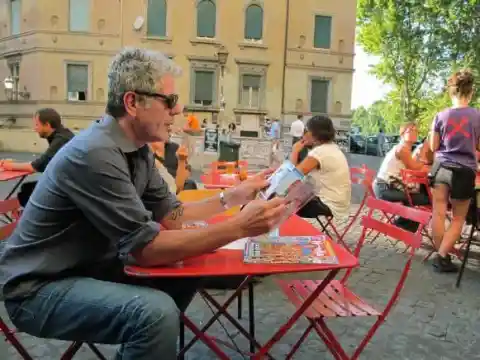
He Showed Us That Although He Wasn't an Activist, He Was Incredibly Active He Showed Us That Although He Wasn't an Activist, He Was Incredibly Active
Bourdain often pushed that he was all about the food, and wasn't the least interested in politics or activism, but he wasn't at all scared to share his opinions. He had just recently become an ally to the #MeToo movement, with his girlfriend, being one of the victims of the Harvey Weinstein crimes. On the day the Hollywood executive appeared in a Manhattan court on the sexual assault charges, Bourdain tweeted an image of a U.S. prison menu, telling Argento "What's on the menu for #Weinstein." Bourdain often shared his opinions about what he knew best, like wasted food for example. In 2013, Bourdain weighed in on the controversy over seal hunting in Canada, amist a U.S boycott aimed at ending the commercial hunt.


Bourdain often pushed that he was all about the food, and wasn't the least interested in politics or activism, but he wasn't at all scared to share his opinions. He had just recently become an ally to the #MeToo movement, with his girlfriend, being one of the victims of the Harvey Weinstein crimes. On the day the Hollywood executive appeared in a Manhattan court on the sexual assault charges, Bourdain tweeted an image of a U.S. prison menu, telling Argento "What's on the menu for #Weinstein." Bourdain often shared his opinions about what he knew best, like wasted food for example. In 2013, Bourdain weighed in on the controversy over seal hunting in Canada, amist a U.S boycott aimed at ending the commercial hunt.
In Bourdain's first book, he gave readers an inside look through his eyes about his lifestyle working the line, and he was unafraid to tell his audience exactly as it was within the culinary business. Many of restaurant-goers still go by the dining-out advice he shared in his first book which included rules like "not ordering fish on a Monday, steering clear of meat cooked well-done, and thinking twice about ordering a seafood frittata." It's been sixteen years, but Bourdain swears that since then, the food business has changed so much that you shouldn't be afraid to order fish on Mondays anymore. However, one little odd tidbit Bourdain swears Westerners should follow while traveling in Asia, is that you Should eat at a restaurant with a dirty bathroom.
He Taught Us That Eating Can Be an Act of Discovery
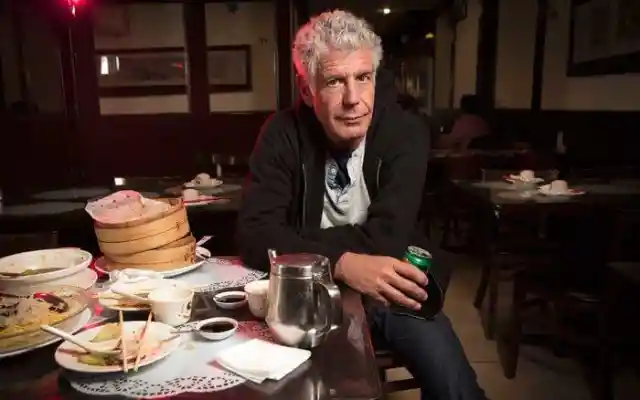
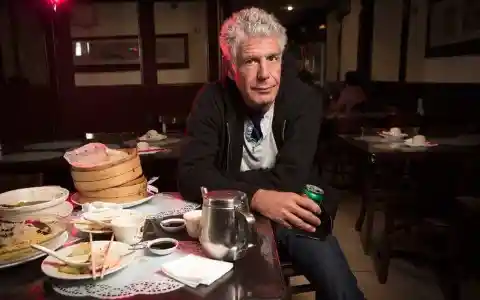
In Bourdain's first book, he gave readers an inside look through his eyes about his lifestyle working the line, and he was unafraid to tell his audience exactly as it was within the culinary business. Many of restaurant-goers still go by the dining-out advice he shared in his first book which included rules like "not ordering fish on a Monday, steering clear of meat cooked well-done, and thinking twice about ordering a seafood frittata." It's been sixteen years, but Bourdain swears that since then, the food business has changed so much that you shouldn't be afraid to order fish on Mondays anymore. However, one little odd tidbit Bourdain swears Westerners should follow while traveling in Asia, is that you Should eat at a restaurant with a dirty bathroom.
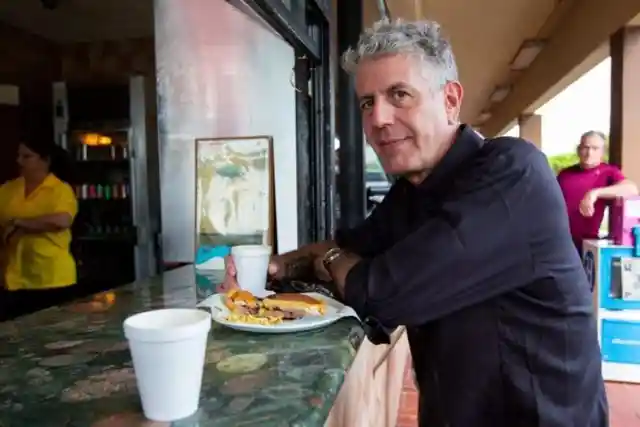
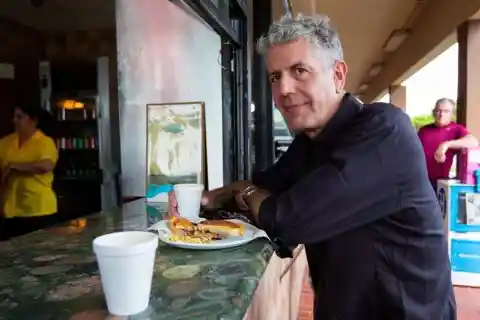
He Taught Us That Eating Can Be an Act of Discovery He Taught Us That Eating Can Be an Act of Discovery
He wrote in "The Nasty Bits" this quote, "Cooking professionally is a dominant act, at all times about control. Eating well, on the other hand, is about submission.It's about giving up all vestiges of control, about entrusting your fate entirely to someone else. It's about turning off the mean, manipulative, calculating, and shrewd person inside you, and slipping heedlessly into a new experience as if it were a warm bath." From Quebecois beaver hunters, to Thai tribesmen, to a Palestinian women's auto racing team, the families and people that he dined with fueled his curiosity. They didn't just break bread, they broke apart their histories and their cultures. His show managed to capture spontaneous laughter, authentic and genuine conversation more than many shows on television.
He Taught Us To Break Stereotypes


He wrote in "The Nasty Bits" this quote, "Cooking professionally is a dominant act, at all times about control. Eating well, on the other hand, is about submission.It's about giving up all vestiges of control, about entrusting your fate entirely to someone else. It's about turning off the mean, manipulative, calculating, and shrewd person inside you, and slipping heedlessly into a new experience as if it were a warm bath." From Quebecois beaver hunters, to Thai tribesmen, to a Palestinian women's auto racing team, the families and people that he dined with fueled his curiosity. They didn't just break bread, they broke apart their histories and their cultures. His show managed to capture spontaneous laughter, authentic and genuine conversation more than many shows on television.
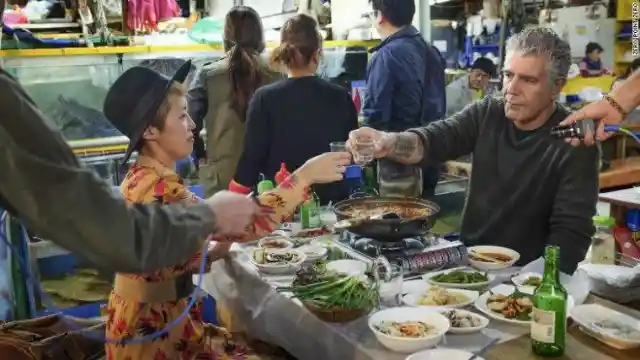
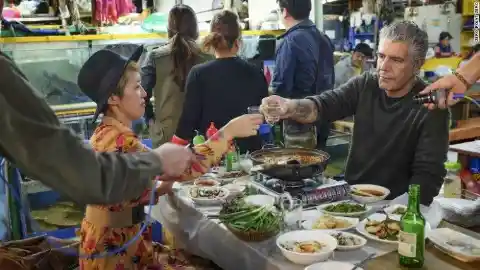
He Taught Us To Break Stereotypes He Taught Us To Break Stereotypes
In almost every way, Bourdain broke apart the stereotype of gourmet cuisine. He was far from an elitist, but he valued street food just as much as he valued good cuisine. He gave credit to the anonymous, and often immigrant workers that were stationed in the basement kitchens of New York's finest restaurants over the high-profile, and high net worth people who owned the establishments. He pushed us to understand that food was not only central to our family and identities, but he made us understand our food's cycle. How it's acquired, who cooks it, and who inevitably eats it.
He Taught Us To Always Be Honest


In almost every way, Bourdain broke apart the stereotype of gourmet cuisine. He was far from an elitist, but he valued street food just as much as he valued good cuisine. He gave credit to the anonymous, and often immigrant workers that were stationed in the basement kitchens of New York's finest restaurants over the high-profile, and high net worth people who owned the establishments. He pushed us to understand that food was not only central to our family and identities, but he made us understand our food's cycle. How it's acquired, who cooks it, and who inevitably eats it.
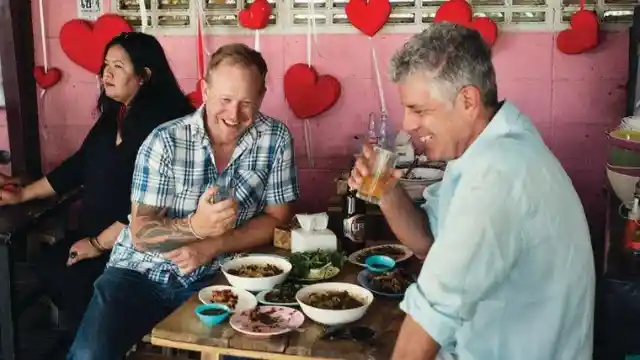
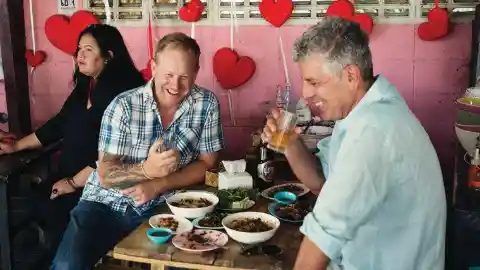
He Taught Us To Always Be Honest He Taught Us To Always Be Honest
Bourdain was known and praised for his honesty. He was upfront about his history of drug use and addiction, and it was because he was so open about his struggles, that he was able to help others. He had firm moral values and stuck up for them. Bourdain was able to take his energy, ingenuity and intelligence and apply them in business settings after he beat his addiction.


Bourdain was known and praised for his honesty. He was upfront about his history of drug use and addiction, and it was because he was so open about his struggles, that he was able to help others. He had firm moral values and stuck up for them. Bourdain was able to take his energy, ingenuity and intelligence and apply them in business settings after he beat his addiction.
Although he's described himself as "a complete a-hole. Selfish, larcenous, druggy, loud, stupid, insensitive and someone you would not want to have known" during his cocaine and heroin-fuelled 20s, you'd expect him tossup his former self or not mention it at all. However, he's since said this about his dark past,"I look back on that and I think about what I'll tell my daughter. 'That was daddy, no doubt about it. But I hope I'll be able to say that was daddy then, this is daddy now. That I'm alive and living in hope." He's also said, "Embarrassment, shame, humiliation, I can live with those. I'm used to it. Why hang on to it, though?" Although he's described himself as "a complete a-hole.
He Taught Us To Count Your Blessings
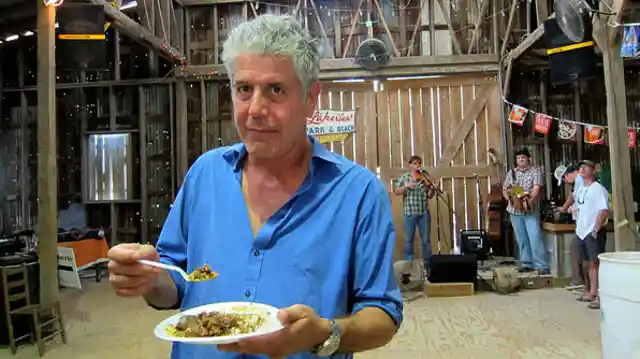
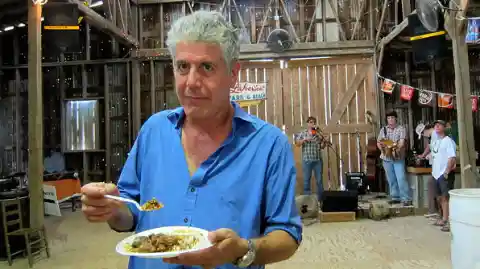
Selfish, larcenous, druggy, loud, stupid, insensitive and someone you would not want to have known" during his cocaine and heroin-fuelled 20s, you'd expect him tossup his former self or not mention it at all. However, he's since said this about his dark past,"I look back on that and I think about what I'll tell my daughter. 'That was daddy, no doubt about it. But I hope I'll be able to say that was daddy then, this is daddy now. That I'm alive and living in hope." He's also said, "Embarrassment, shame, humiliation, I can live with those. I'm used to it. Why hang on to it, though?"
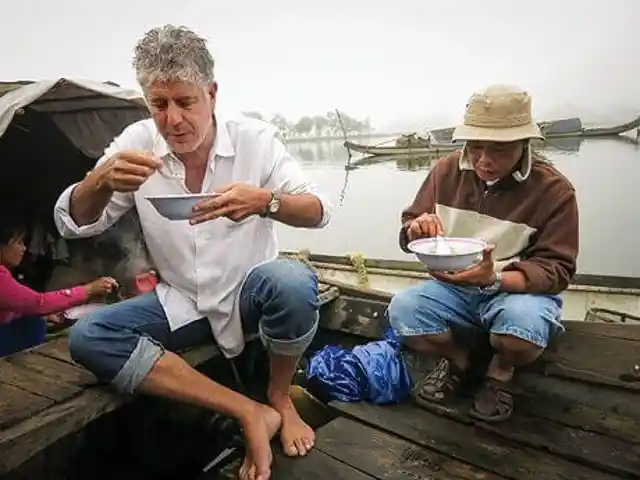
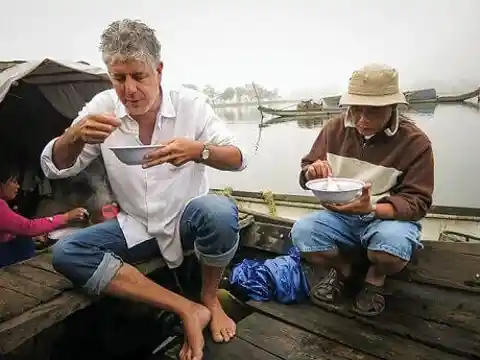
He Taught Us To Count Your Blessings He Taught Us To Count Your Blessings
Since working part-time in a seafood restaurant during his college years, Bourdain certainly came a long way. In spite of his insane success, he still remembered to find little reminders in his adventures and work of how good life had turned out for him. "To climb a dune in the Egyptian desert and look out over the desert as the moon's rising, surrounded by friends that I work with, a belly full of some food that no one outside that time zone ever gets to experience, that's a "pinch me" moment for sure. It's pretty damn awesome for a guy for whom brunch shift is a pretty recent memory..I feel like I've stolen a car, a really nice car, and I keep looking in the rearview mirror for flashing lights. But there's been nothing yet.
He Taught Us To Be Open To Experiences, But To Be Smart About Them Too


Since working part-time in a seafood restaurant during his college years, Bourdain certainly came a long way. In spite of his insane success, he still remembered to find little reminders in his adventures and work of how good life had turned out for him. "To climb a dune in the Egyptian desert and look out over the desert as the moon's rising, surrounded by friends that I work with, a belly full of some food that no one outside that time zone ever gets to experience, that's a "pinch me" moment for sure. It's pretty damn awesome for a guy for whom brunch shift is a pretty recent memory..I feel like I've stolen a car, a really nice car, and I keep looking in the rearview mirror for flashing lights. But there's been nothing yet.
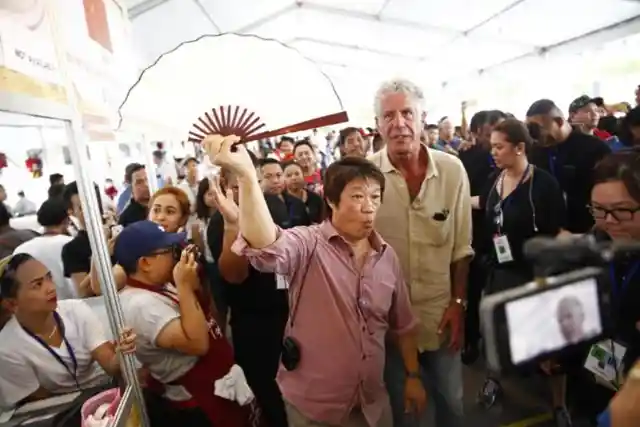
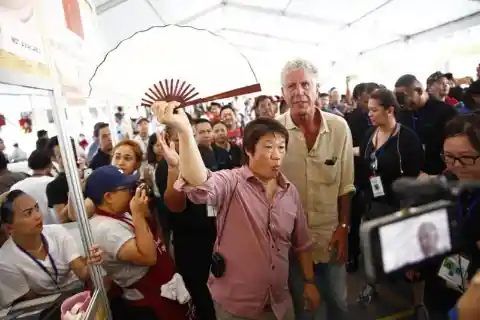
He Taught Us To Be Open To Experiences, But To Be Smart About Them Too He Taught Us To Be Open To Experiences, But To Be Smart About Them Too
It's pretty obvious that Bourdain had almost no reserves when it came to foods he would try. From sheep testicles, a cobra heart, and a raw seal eyeball, but he's still claimed that the Chicken McNugget is the worst thing he has eaten. He has given this advice to his audience, "I'd say, just be open. Don't be afraid. If it's appropriate to drink alcohol, drink heavily. Be smart, but be open to the world." It's pretty obvious that Bourdain had almost no reserves when it came to foods he would try.


From sheep testicles, a cobra heart, and a raw seal eyeball, but he's still claimed that the Chicken McNugget is the worst thing he has eaten. He has given this advice to his audience, "I'd say, just be open. Don't be afraid. If it's appropriate to drink alcohol, drink heavily. Be smart, but be open to the world."
Perhaps, his true legacy is his compassion. Through his books, multiple television programs, and travelogues, he has showed us what a love for life truly looks like. He's showed us that it is not seeking out the finest things or accruing wealth: it is indeed about opening your heart to your fellow man. His shows on television were indeed about food, but they were mostly about humanity. By embedding himself in exotic lands, strangers' kitchens, and even sitting on a stoop outside a small tamale cart in Queens, he showed us that there was a close relationship between food, feelings, and humanity. Although his life was cut short, his legacy will surely live on. We must understand that we all eat food, and we all need love. Anthony Bourdain influenced a different kind of foodies and chefs, ones that must see food as it is, without all the fancy stuff.
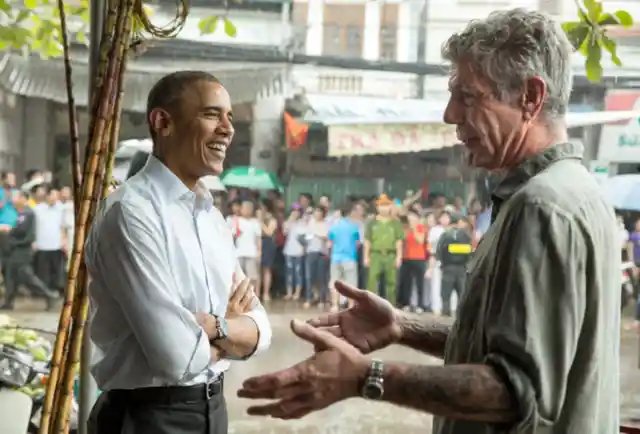
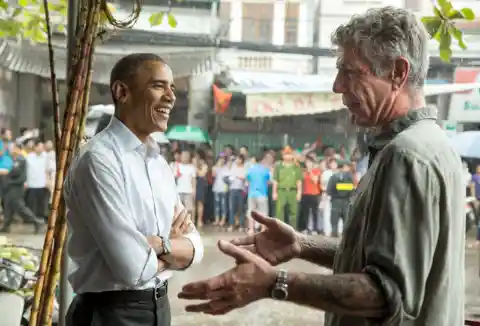
Perhaps, his true legacy is his compassion. Through his books, multiple television programs, and travelogues, he has showed us what a love for life truly looks like. He's showed us that it is not seeking out the finest things or accruing wealth: it is indeed about opening your heart to your fellow man. His shows on television were indeed about food, but they were mostly about humanity. By embedding himself in exotic lands, strangers' kitchens, and even sitting on a stoop outside a small tamale cart in Queens, he showed us that there was a close relationship between food, feelings, and humanity. Although his life was cut short, his legacy will surely live on. We must understand that we all eat food, and we all need love. Anthony Bourdain influenced a different kind of foodies and chefs, ones that must see food as it is, without all the fancy stuff.
At the end of most of Bourdain's TV episodes, he tended to share with everyone what he learned from the experience or place he was visiting. The lesson itself was about more than what was actually covered in the entirety of the episode. He wasn't scared to ask his viewers to ask themselves not "what they saw," but what did they learn. He was trying to teach his viewers not just about the place but about travel, about the world, and how they effect us as people. There's a huge difference between experiencing and sightseeing. Every place we travel to teaches us something, we just need to figure out what it is. If you begin to ask yourself that question after a trip, you may begin to see the patterns and the lessons of each one.
You'll Probably Learn More By Slowing Down Than By Speeding Up
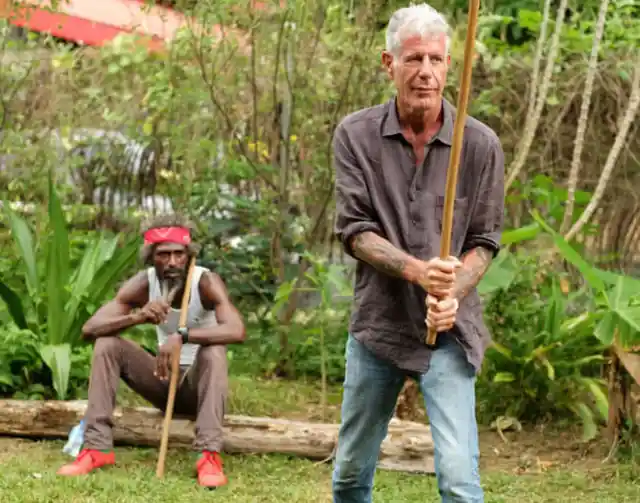
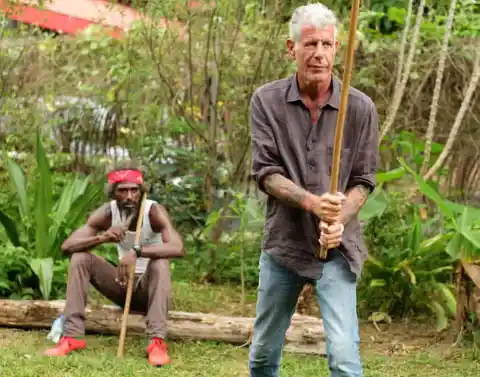
At the end of most of Bourdain's TV episodes, he tended to share with everyone what he learned from the experience or place he was visiting. The lesson itself was about more than what was actually covered in the entirety of the episode. He wasn't scared to ask his viewers to ask themselves not "what they saw," but what did they learn. He was trying to teach his viewers not just about the place but about travel, about the world, and how they effect us as people. There's a huge difference between experiencing and sightseeing. Every place we travel to teaches us something, we just need to figure out what it is. If you begin to ask yourself that question after a trip, you may begin to see the patterns and the lessons of each one.
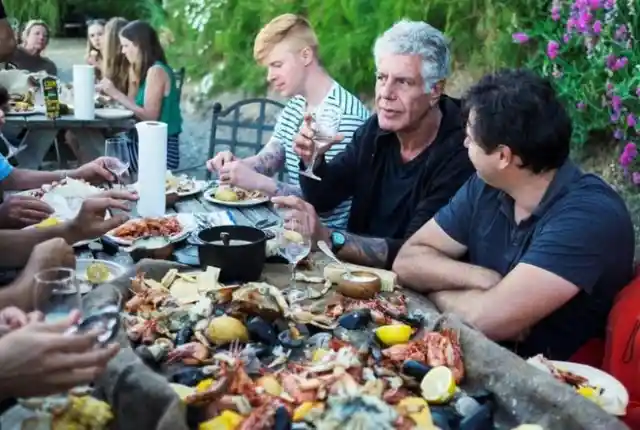
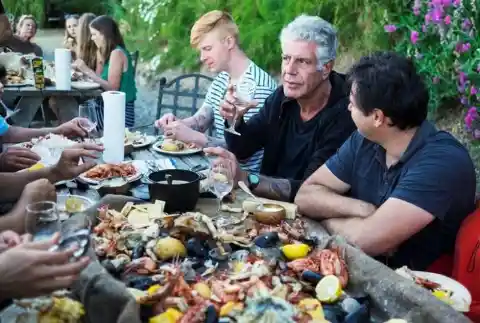
You'll Probably Learn More By Slowing Down Than By Speeding Up You'll Probably Learn More By Slowing Down Than By Speeding Up
In the very first episode of "No Reservations", Bourdain spends the entire last 3 minutes of the show sitting in a bistro in Paris while casually sipping coffee and eating a ham sandwich. He didn't have to come out and say that the Parisian culture was a place of relaxing and savoring instead of visiting landmarks and attractions. It was those three minutes that said everything instead of actually verbally speaking to the audience. This became a theme many episodes from here on out.


In the very first episode of "No Reservations", Bourdain spends the entire last 3 minutes of the show sitting in a bistro in Paris while casually sipping coffee and eating a ham sandwich. He didn't have to come out and say that the Parisian culture was a place of relaxing and savoring instead of visiting landmarks and attractions. It was those three minutes that said everything instead of actually verbally speaking to the audience. This became a theme many episodes from here on out.
You can't really figure out the amazing characteristics of a place unless you see the not so great side of it all. It could be something as corny as the Dracula tourism in Romania or a tourist cabe in Jamaica. Bourdain didn't really stay away from these places because they were part of the entire place. They are part of the whole story. Many travel writers, blogs, influencers or TV Host will only give you the positive side of things, and that's just like giving a greeting card or brochure.
A Place Is More About It's People Than It's Monuments or Museums
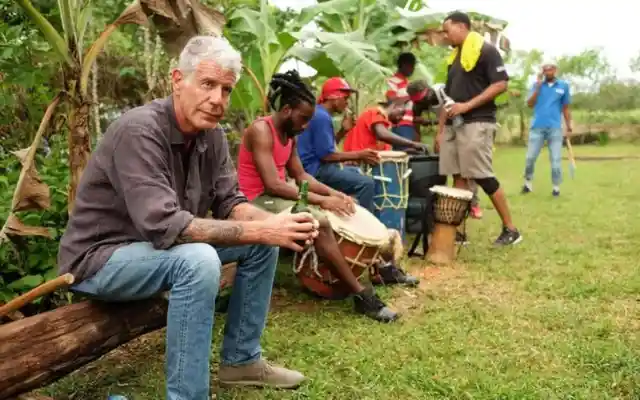
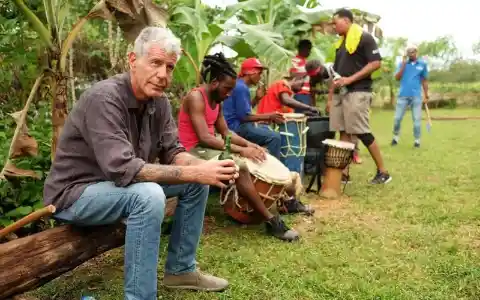
You can't really figure out the amazing characteristics of a place unless you see the not so great side of it all. It could be something as corny as the Dracula tourism in Romania or a tourist cabe in Jamaica. Bourdain didn't really stay away from these places because they were part of the entire place. They are part of the whole story. Many travel writers, blogs, influencers or TV Host will only give you the positive side of things, and that's just like giving a greeting card or brochure.
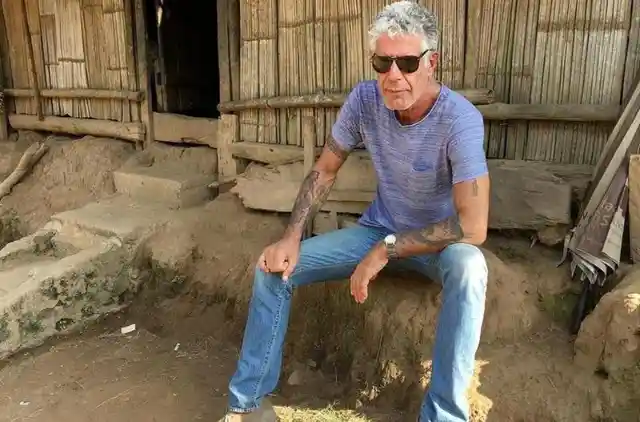
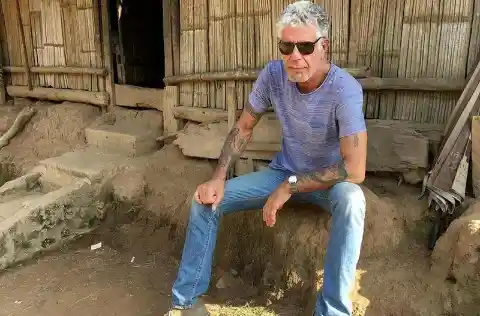
A Place Is More About It's People Than It's Monuments or Museums A Place Is More About It's People Than It's Monuments or Museums
Sure, as a chef, Bourdain has spent a good amount of time in restaurants and kitchens, but the most important element of any episode was the culture. There was always a local chef, celebrity, blogger or longtime compatriot who could explain what Bourdain and the world needed to know to appreciate the place. Also, of course to show the audience where to eat the most relevant dishes. Monuments and museums that are the staple of most travel coverage were rare here, less relevant.
No Amount of Restaurant Food Can Replace Home Cooking


Sure, as a chef, Bourdain has spent a good amount of time in restaurants and kitchens, but the most important element of any episode was the culture. There was always a local chef, celebrity, blogger or longtime compatriot who could explain what Bourdain and the world needed to know to appreciate the place. Also, of course to show the audience where to eat the most relevant dishes. Monuments and museums that are the staple of most travel coverage were rare here, less relevant.
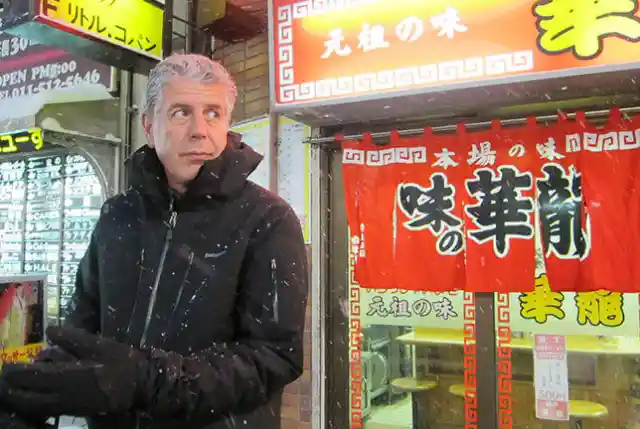
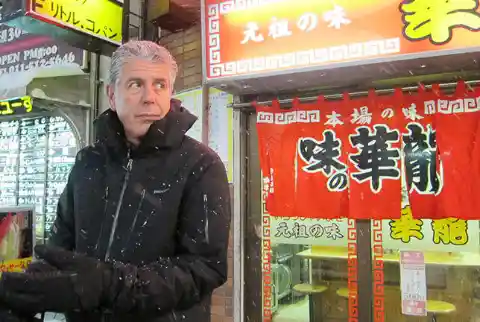
No Amount of Restaurant Food Can Replace Home Cooking No Amount of Restaurant Food Can Replace Home Cooking
Not everyone will grow up to be a culinary genius like Bourdain, but he often says that he wished young adults would stop relying on takeout and instant ramen. "I do think the idea that basic cooking skills are a virtue, that the ability to feed yourself and a few others with proficiency should be taught to every young man and woman as a fundamental skill, should become as vital to growing up as learning to wipe one's own a**, cross the street by oneself, or be trusted with money." Not everyone will grow up to be a culinary genius like Bourdain, but he often says that he wished young adults would stop relying on takeout and instant ramen.
There's More To Africa Than Safari Animals


"I do think the idea that basic cooking skills are a virtue, that the ability to feed yourself and a few others with proficiency should be taught to every young man and woman as a fundamental skill, should become as vital to growing up as learning to wipe one's own a**, cross the street by oneself, or be trusted with money."
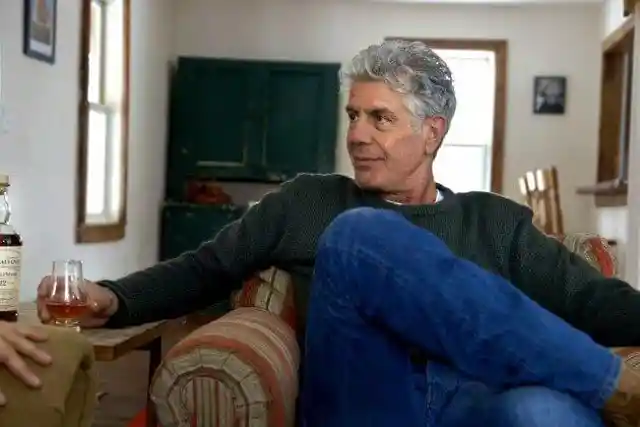
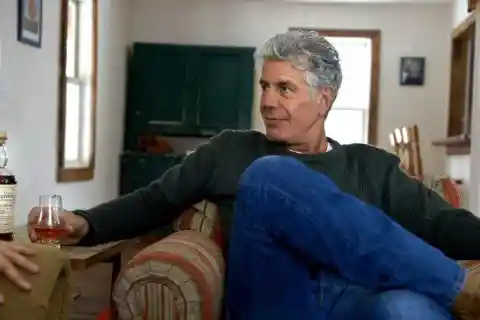
There's More To Africa Than Safari Animals There's More To Africa Than Safari Animals
Western media has a somewhat shallow way of covering Africa, mostly through it's wild animals. Everyone loves talking about how they saw a cheetah in the wild or the feeling of watching a stampede of wildebeest. But, there are very few travel stories that cover Africa's major city in the way they would approach a European city. Bourdain produced episodes in nearly a dozen African countries, including Ghana, Nigeria, Ethiopia, Congo, Namibia and Senegal. It focused on the music, food, art and history of the local culture through conversations with people and not just through the wildlife.
A Single Perspective is Never Enough


Western media has a somewhat shallow way of covering Africa, mostly through it's wild animals. Everyone loves talking about how they saw a cheetah in the wild or the feeling of watching a stampede of wildebeest. But, there are very few travel stories that cover Africa's major city in the way they would approach a European city. Bourdain produced episodes in nearly a dozen African countries, including Ghana, Nigeria, Ethiopia, Congo, Namibia and Senegal. It focused on the music, food, art and history of the local culture through conversations with people and not just through the wildlife.
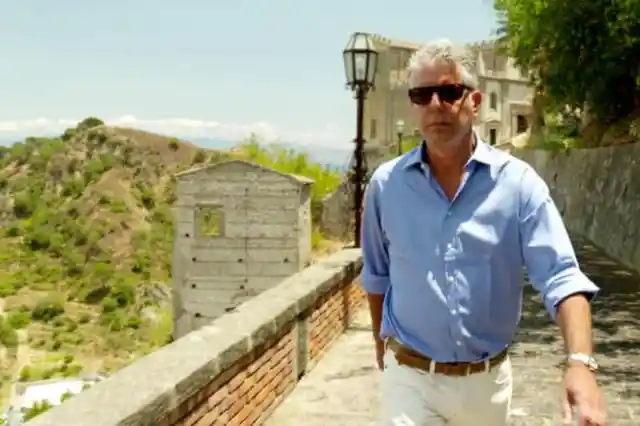
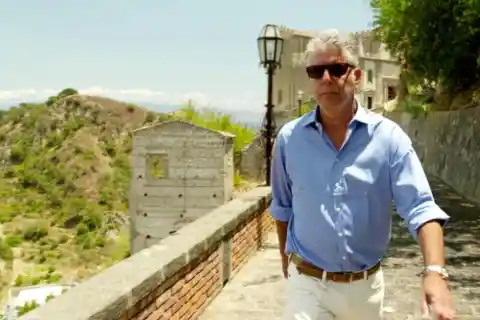
A Single Perspective is Never Enough A Single Perspective is Never Enough
Bourdain had a set of very strong beliefs. Depending on where you fall on the political spectrum, you might either love him or hate him. But, regardless of what his personal beliefs were, he never passed up an opportunity to listen and learn. During an episode of "Parts Unknown," he recognized the humanity; the good within those with whom he disagreed with politically. "Here, in the heart of every belief system I've ever mocked or fought against, I was welcomed with open arms by everyone. I found a place both heartbreaking and beautiful, a place that symbolizes and contains everything wrong and everything wonderful and beautiful about America. " The episode took place in the coal country of McDowell County, West Virginia, where the people had political views very much opposite of Bourdain's. However, he still visited, experienced the food, and learned about the region's history and listened to the stories of the residents. After spending time with the residents, his perspective grew.
Always Be Respectful


Bourdain had a set of very strong beliefs. Depending on where you fall on the political spectrum, you might either love him or hate him. But, regardless of what his personal beliefs were, he never passed up an opportunity to listen and learn. During an episode of "Parts Unknown," he recognized the humanity; the good within those with whom he disagreed with politically. "Here, in the heart of every belief system I've ever mocked or fought against, I was welcomed with open arms by everyone. I found a place both heartbreaking and beautiful, a place that symbolizes and contains everything wrong and everything wonderful and beautiful about America. " The episode took place in the coal country of McDowell County, West Virginia, where the people had political views very much opposite of Bourdain's. However, he still visited, experienced the food, and learned about the region's history and listened to the stories of the residents. After spending time with the residents, his perspective grew.
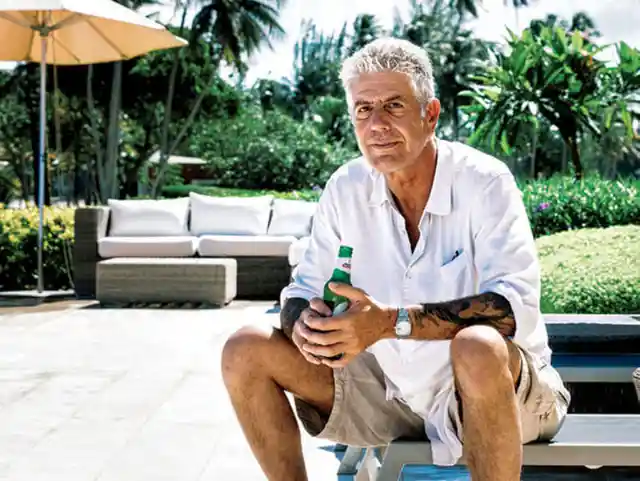
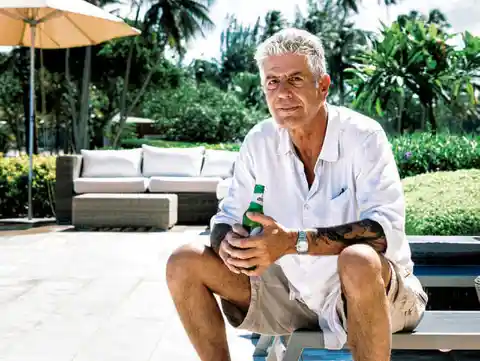
Always Be Respectful Always Be Respectful
It's clear in "No Reservations" how deeply respectful and thankful Anthony was when it came to other cultures. He learned words and customs that would show his gratitude, and he always tried any food given to him, knowing that many times families could not afford to eat what they gave him themselves. Anthony seemed to be in his element sitting in a stranger's living room. He ate and drank things far out of his comfort zone, and you very rarely saw him grimace.


It's clear in "No Reservations" how deeply respectful and thankful Anthony was when it came to other cultures. He learned words and customs that would show his gratitude, and he always tried any food given to him, knowing that many times families could not afford to eat what they gave him themselves. Anthony seemed to be in his element sitting in a stranger's living room. He ate and drank things far out of his comfort zone, and you very rarely saw him grimace.
At the end of a "No Reservations" episode that took place in Malaysia, Bourdain is extremely emotional and conflicted about where to go from there, physically and philosophically. "The journey changes you. It should change you. It leaves marks on your memory, your consciousness, your heart and on your body. You take something with you and, hopefully, you leave something good behind.
Movement Gives Life Meaning
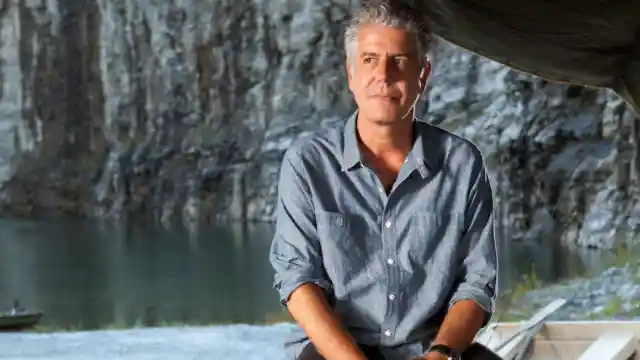
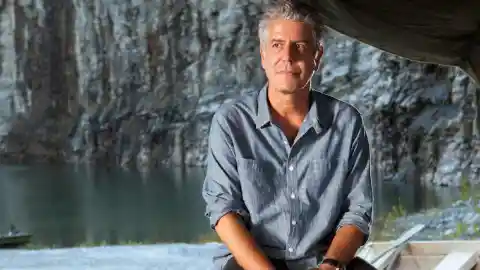
At the end of a "No Reservations" episode that took place in Malaysia, Bourdain is extremely emotional and conflicted about where to go from there, physically and philosophically. "The journey changes you. It should change you. It leaves marks on your memory, your consciousness, your heart and on your body. You take something with you and, hopefully, you leave something good behind.
